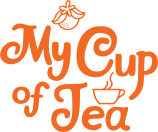
Steering Wheel or Spare Tire?
“Marketing” and “Development” are corporate words for saying I sell tea and raise money to support the work at My Cup of Tea. Because we are bursting at the seams at The House with packaging and shipping activities, my work is primarily performed from my home office. But about once per week, I have the privilege of driving into Orange Mound and engaging with the ladies of My Cup of Tea.
At a recent meeting at The House, we were steadily ticking off the items on our agenda when we were unexpectedly interrupted. One of the employees came through the door at her normal time, but not for the purpose of work. She held the arm of her brother who gingerly shuffled across the hardwood floor trembling with each step. Several of the women stopped what they were doing, and the employee said,
“I brought my brother here today because he needs prayer. Will y’all pray for him now?”
Without hesitation, the women gathered in the main room where Rick and Carey Moore, My Cup of Tea’s founders, Debbie, our operations manager, and I were meeting. They didn’t ask if they could gather there when we had finished. They didn’t ask that we excuse the intrusion, nor should they have asked. Their matter was an urgent one that far outranked anything we were discussing. They invited us to join them in prayer, but none of us was asked to lead the prayer. The women had it covered.
We learned that this sick man, not really very old, had suffered from a stroke and previously spent months in the hospital recovering. He had been allowed to come home to his sister’s care, though he could do little for himself and had difficulty speaking. The stroke and the ensuing battle to recover was known among the women, and they had prayed for this man’s recovery for a long time, but this day was different.
He was there in person asking for prayer from people he didn’t know very well, but whom he had been told would pray for him. The specific request was that he would receive the financial support he needed to pay for his basic living and medical expenses since obviously he was disabled and not capable of working. His benefits had become the victim of government “red tape” and though he couldn’t verbally articulate it, the desperation was evident in his eyes.
His sister seated him at the head of the long, varnished table. I kept my seat, but the women encircled him and those that were able placed a hand on his shoulders or back. Someone asked Diane to lead the prayer, and boy did she. She spoke directly and reverently to God. Her words were filled with passion and genuine faith that God would answer. And after each entreaty, the women’s chorus would exclaim, “Yes, Lord,” “Please Lord,” and “Amen.”
After several minutes the prayer concluded. I felt tired, but relieved, as if a weight had been lifted from my shoulders though the burden prayed for was not even mine. The man’s countenance had changed, too. He smiled, thanked the ladies as best as he could, and gratefulness, not desperation was the message in his eyes.
I don’t know how God has answered or is continuing to answer that prayer, but I have thought about the prayer and the experience often. Praying together and studying the Bible are strictly voluntary at My Cup of Tea. There is no requirement to share the same beliefs to work there, and no one is judged who opts out, though there is a standing invitation.
But there is one thing you can’t opt out of – being prayed for.
The women of My Cup of Tea pray regularly, fervently, and live by the command in Galatians 6:2 to “bear one another’s burdens.” They don’t have to know your burdens because they know that God knows them. They pray for each other, for our volunteers, and for a restoration of their community.
Corrie Ten Boom, the Dutch, Christian author famously asked, "Is prayer your steering wheel or your spare tire?" The women of My Cup Tea have both hands on the wheel.













